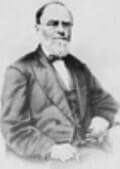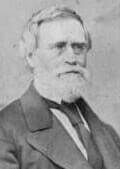the Second Week of Lent
Click here to join the effort!
Bible Commentaries
Abbott's Illustrated New Testament Abbott's NT
Old Testament
Jesus' life, teachings, and fulfillment of Old Testament prophecies as the Messiah. Mark
A fast-paced account of Jesus' ministry, focusing on his actions and sacrificial death. Luke
Jesus' life, emphasizing compassion for the marginalized and the universal scope of salvation. John
Theological reflections on Jesus as the Word of God, focusing on his divine nature and mission. Acts
The early church's growth, the apostles' ministry, and the spread of the Gospel. Romans
A theological treatise on salvation, grace, faith, and righteousness through Jesus Christ for all. 1 Corinthians
Paul addresses divisions, immorality, and spiritual gifts in the Corinthian church. 2 Corinthians
Paul's defense of his apostleship, his sufferings, and the power of God's grace. Galatians
Paul's defense of the Gospel of grace against legalism, emphasizing faith in Christ alone. Ephesians
Paul's teachings on the church's unity, spiritual blessings in Christ, and Christian conduct. Philippians
A letter of joy and encouragement, urging humility and faithfulness amid persecution. Colossians
Paul's emphasis on Christ's supremacy and warnings against false teachings. 1 Thessalonians
Encouragement to a young church, with teachings on holiness and Christ's return. 2 Thessalonians
Clarifications about Christ's return and exhortations to stand firm in faith. 1 Timothy
Guidance for church leadership, sound teaching, moral conduct, and defending the truth of the gospel. 2 Timothy
Paul's final exhortations to Timothy, emphasizing perseverance and faithfulness. Titus
Instructions for establishing order in the church, promoting sound doctrine, and living with integrity. Philemon
A personal appeal for the forgiveness and restoration of a runaway slave, Onesimus. Hebrews
An insightful look at Christ's supremacy, priesthood, and the fulfillment of prophecies. James
Practical wisdom on living out one's faith through good works and righteous behavior. 1 Peter
Encouragement for suffering Christians to remain faithful and hopeful in their trials. 2 Peter
A reminder to grow in faith, resist false teachings, and remain steadfast awaiting His return. 1 John
Teachings on love, obedience, and assurance of salvation through fellowship with God. 2 John
A letter encouraging love, obedience to God's commands, caution against teachings that deny Christ's truth. 3 John
A personal letter commending hospitality and warning against arrogance in church leadership. Jude
A strong warning against false teachers and a passionate call to defend the faith and uphold the truth. Revelation
Apocalyptic visions of God's ultimate victory, Christ's return, and the new heaven and earth.
Author's Biography
John and Jacob Abbott were influential figures in 19th-century American literature, renowned for their contributions to children's literature and education. John Abbott (1805-1877) and his brother Jacob Abbott (1803-1879) were prolific authors, educators, and theologians who left an indelible mark on the literary and educational landscape of their time.
Jacob Abbott, the elder of the two, was a trailblazer in creating literature that was both educational and engaging for young readers. He is best known for his "Rollo Books," a series that follows the adventures of a young boy named Rollo and is designed to teach moral, social, and scientific lessons in an accessible and entertaining manner. Jacob's approach to children's literature was innovative for its time, focusing on storytelling that would stimulate the minds of young readers while instilling valuable lessons.
John Abbott, following closely in his brother's footsteps, also made significant contributions to educational literature, though his works often leaned more towards historical and biographical subjects. He had a talent for bringing history to life, making it relatable and fascinating for children and adults alike. His writings served as a bridge between textbook learning and captivating narrative, helping readers develop an appreciation for history and its lessons.
Together and individually, the Abbott brothers authored over 200 books, covering an expansive range of topics including science, history, biography, and moral teachings. Their works were characterized by a clear, concise writing style and a commitment to providing moral and educational value. They believed in the power of literature as a tool for enlightenment and education, a philosophy that guided their prolific writing careers.
The Abbott brothers' legacy extends beyond their written work; they were pioneers in the field of American children's literature, setting a precedent for educational writing that is both informative and engaging. Their contributions have endured, continuing to influence the realms of children's literature and educational philosophy to this day.

